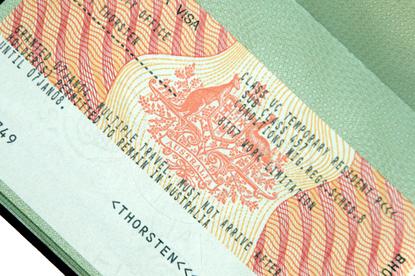Foreign IT worker influx would stifle wage growth: analyst
- 20 June, 2014 16:13

Allowing foreign financial institutions to ship “temporary” ICT workers into Australia will supress wage growth for domestic technology specialists, says IBRS analyst Guy Cranswick.
WikiLeaks on Thursday released secret draft text for Trade in Services Agreement (TISA) negotiations, which show that Australian government trade negotiators are pushing to deregulate our financial and banking sector, giving overseas banks more freedom to trade in Australia.
The proposed changes would allow these organisations to use temporary computer and telecommunications services workers from overseas.
According to Cranswick, the repercussions of this are quite clear.
“It means that you supress wages and salary growth so that you increase marginal productivity and increase the profits of the large corporations,” he told CIO.
“Couple that with automation and offshoring and you can see wage growth being well below inflation,” he said. “Figures on wage growth in Australia over the past 12 months bear that out. These sorts of moves are designed to benefit the very largest corporations."
He also questioned whether new rules around 457 visas have been quite lax or “actually in force.”
In early 2013, the previous Labor government said it would tighten requirements around 457 visas to address ICT skills shortages and issue the visas to temporary workers to fill jobs that can’t be filled locally.
“I’ve seen commentary in the North Hemisphere about how wages … in the US and Britain in particular have gone backwards in the last six to seven years, and yet the capital share of profits has gone more to holders of capital than it has to wage and salary earners,” he said.
Cranswick quoted a report released earlier this year by Dr David Gruen, executive director of the Australian Treasury’s Macroeconomic Group, which suggested that the ICT sector would experience negative employment growth between 2012 and 2030.
“When you put that in the context of a rising population … it’s a negative outlook,” he said.
The treaty could also see financial data from Australians' bank accounts being transferred overseas.
Cranswick said the issue of privacy and banking records "being exported to wherever" would make many people uneasy.
"You've just got no sense of security," he said.
"It would also make data sovereignty a much more difficult thing to be certain about and whether the law would understand it in the same terms that it has done before," he said.
Follow CIO Australia on Twitter and Like us on Facebook… Twitter: @CIO_Australia, Facebook: CIO Australia, or take part in the CIO conversation on LinkedIn: CIO Australia
Follow Byron Connolly on Twitter:@ByronConnolly
Follow CIO Australia on Twitter and Like us on Facebook… Twitter: @CIO_Australia, Facebook: CIO Australia, or take part in the CIO conversation on LinkedIn: CIO Australia

